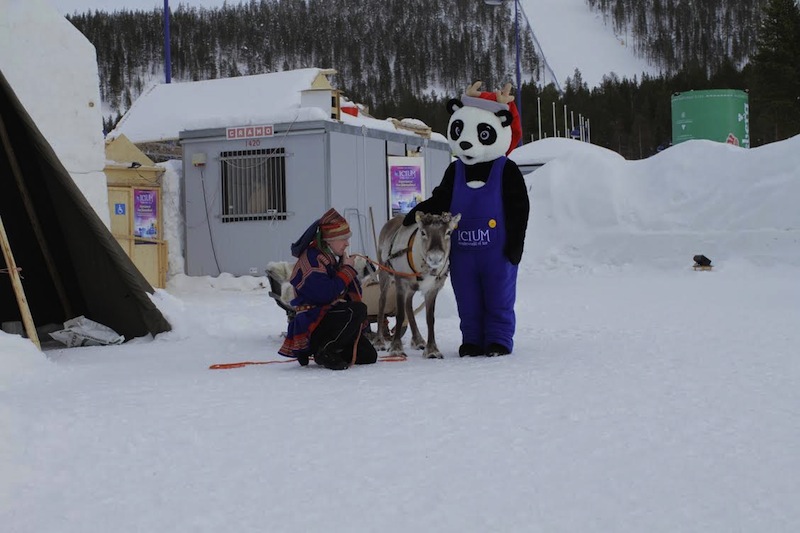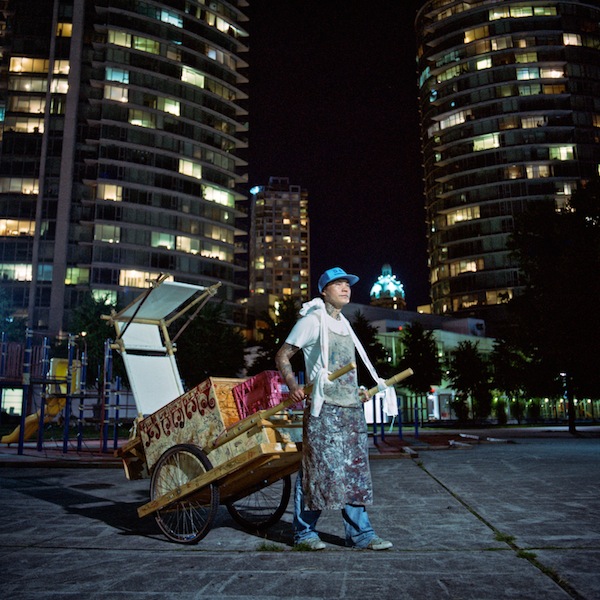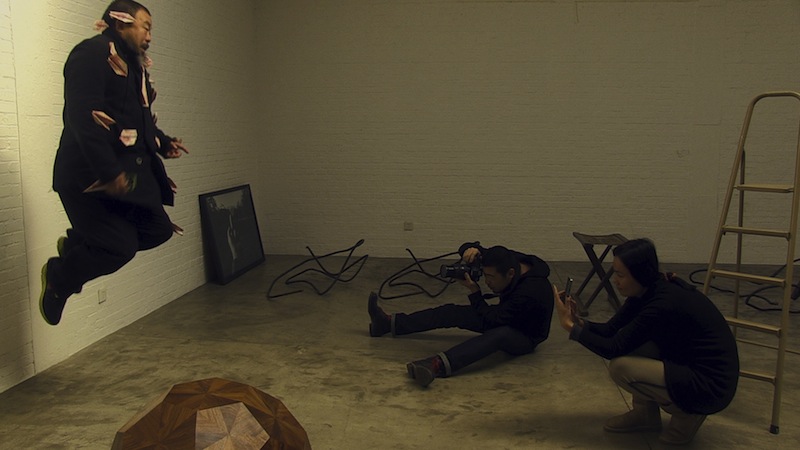More than 190 documentaries from 43 countries will be featured in this year’s Hot Docs Canadian international documentary festival with a slew of special events — including appearances by hard rocker Alice Cooper for Super Duper Alice Cooper, Star Trek’s George Takei at the screening of To Be Takei and The Measure of All Things Live Documentary in which Oscar-nominated director Sam Green will live-narrate his film about stories from the Guinness Book of World Records accompanied by a live soundtrack from New York band The Quavers.
Here are my picks for docs to watch at the 11-day festival, which begins April 24 in Toronto, but please peruse the lineup which has something for everyone. This year’s spotlight is on Danish films and I cannot say enough about the “Redux” section, which has a reprise of the 2006 sleeper hit The Monastery: Mr. Vig and the Nun, a character study masterpiece by Danish director Pernille Rose Grønkjær, and the 1967 classic by Shirley Clarke, Portrait of Jason.
Rounding back to the Danes, I begin with Ai Weiwei: The Fake Case by Andreas Johnsen. If you saw Ai Weiwei: Never Sorry, you absolutely must catch this one. Never Sorry captured China’s bad boy of art sticking it to the authorities while also delving into the everyday workings of his studio and his mind. During that film, we saw briefly how the artist was taken away for 90 days’ imprisonment, returning reticent and silenced by authorities, only to be slapped with a massive bill for tax evasion. The Fake Case picks up the thread. At home, under probation for one year, we witness the artist navigate the system — he has to tell his minders where he’s going at all times. “They have no sense of right or wrong… they only take orders,” he asserts. We get the languid sense of a life under a dictatorial glare but also the inner life of the artist who remains unapologetic (he playfully reverse-stalks the security agents that tail him): “I’m not a political artist. I’m just political.” We also get one of the few in-depth appearances of his mother, who was jailed as an intellectual during the Cultural Revolution. She warns him that in the old days, he’d be dead by now. In his fight against the tax evasion charge, we see the inner machinations of his legal team, the stresses of being the sharp end of the battle against the system and the unwavering belief he has that China will “completely collapse” one day soon.
A panda among reindeer. From the surreal opening shot of Ilkka Rautio’s Wonder World of Ice, you are struck by the odd pairing of East and West — Chinese workers in Levi, the biggest ski resort of Lapland, in northern Finland. Creating a special “wonderland” amusement park, the film peels back icy layer upon icy layer of cultural mix-ups and mash-ups. A Chinese student, who works as a panda mascot, reflects on how he ended up in Finland (bad marks) while the ice carvers ruminate on the easy life of the Finns, who seem much more relaxed: “Their welfare is much better than ours. They are not stressed.” The Chinese workers believe the Finns, or rather the indigenous Sami people, to be backwards, with their slow lives and restricted banking hours and can’t quite reconcile how China seems more advanced compared to what they thought a Western culture would be. But, what is better? It’s an enchanting documentary with much to chew on.

Photo credit: Wonder World of Ice
The Condemned is a film that I had thought I would never watch all the way through. I could not take my eyes off the screen. Deep in a forest the size of Germany, seven hours from any town, sits Russia’s maximum-security prison holding 260 murderers. Director Nick Read and his team are given unprecedented access to the prisoners and he manages to draw out the absorbing stories of a handful. One describes how he killed six people — including a woman and a 10-year-old child — during a drunken rage. He admits to only having remorse for killing the child. One former gang member, who killed a member of an opposing gang, spends his time reading the likes of Aristotle and Einstein. “Time is relative,” he surmises. Another, who at one time sewed his mouth shut, admits he would likely kill again if he was released but when faced with seeing his mother again after a seven-year absence, he becomes a child unable to face his own guilt. Guards also speak and the everyday actions (making food, taking a bath, walking outside) of the prisoners are also melded into the doc. Everyone in the film is incredibly astute and articulate about their circumstances. The film is powerful beyond all measure.
Everything Will Be is Vancouver director’s Julia Kwan’s ode to the city’s disappearing Chinatown as hipster galleries move in and condo developers grab decaying properties. It’s shot lovingly through the eyes of several inhabitants, including an elderly woman who has sold Chinese-language papers on the street for 20 years, a tea shop owner, a Chinese-Canadian artist attempting to capture the neighbourhood’s spirit, a real estate consultant and a few Caucasian residents who also bemoan the gentrification. The National Film Board documentary has the feel of dropping in and hanging out with Chinatown denizens and the camera elegantly captures the scenes, drawing you into the neighbourhood’s daily rhythms and interactions. The film poses the question of the value of a community’s history and the conundrum of how we preserve while also moving on. All sides are given their due here and as the tea shop owner discloses she is shuttering her family’s store for good, she asks: “What can we retain? Legacy? No… people forget you.” Lights out.

Photo credit: Everything Will Be
Slums, on the other hand, are a different kind of neighbourhood. Quebec filmmaker Jean-Nicolas Orhon provides a valuable examination of the origins and the creation of these “communities of the poor” from around the world in Slums: Cities of Tomorrow. The documentary is a series of case studies and while there are a lot of dry, didactic moments with theorists and analysts, the film is saved by the intriguing stories of individuals living in these communities, starting with a squatter camp in New Jersey and moving to other places around the world including a caravan city in France, a Mumbai shantytown and a poor neighbourhood in Morocco. All are examples of what the film says is the greatest growth in urban centres. According to Orhon’s film, the world’s squatter communities hold 1 billion people. They are important indicators of the world’s economic development. Most people have a job but they can’t afford the housing that comes with the official city. Where does the future lie? In “collective activity,” as one analyst urges. What does that mean? It means we have to start sharing.
To state that Return to Homs is gripping is an understatement. Tracking three years in the city that symbolizes the civil war in Syria, the portrait of two friends and rebel fighters is intense and intimate. While difficult at times to watch, with people getting maimed or killed, it is vital viewing of on-the-ground fighting and the frustrations borne by Syrians who feel the world has abandoned them. Filmmaker Talal Derki chronicles the journey of two buddies, local soccer star Basset and media activist Ossama, as they take up arms against their country’s regime. As they engage in combat street for street and send images out into the world, their battle becomes internal: how long can they keep fighting? “Peaceful resistance is futile,” points out the ever-exuberant Basset, 19. “You are dealing with people who do not fear God.” We witness the funerals (Basset loses all his close friends), the boredom and the delirium of being at war, and the dismal future that awaits: “Everyone is promising and no one is delivering,” Basset declares. We keep watching.
There are many other riveting films at the festival. Canadian documentaries to catch include: Secret Trial 5, Come Worry With Us, David and Me, Guidelines and A Dress Rehearsal for an Execution.
Foreign films to watch include Demonstration, Mad as Hell, Children 404 and Starfish Throwers.
If you can’t make it to Hot Docs, look out for these documentaries at your local film festival, cinema, on television or at community screenings.
June Chua is a Toronto-based journalist who regularly writes about the arts for rabble.ca.



